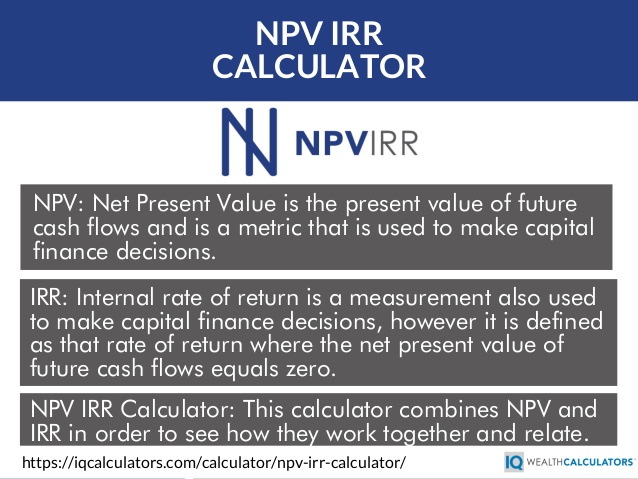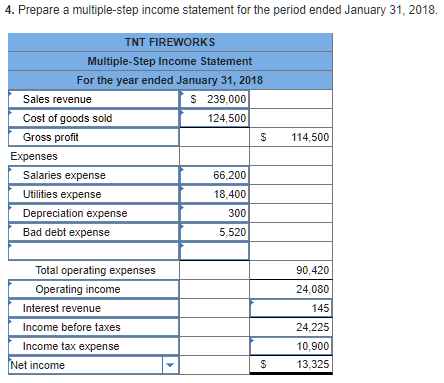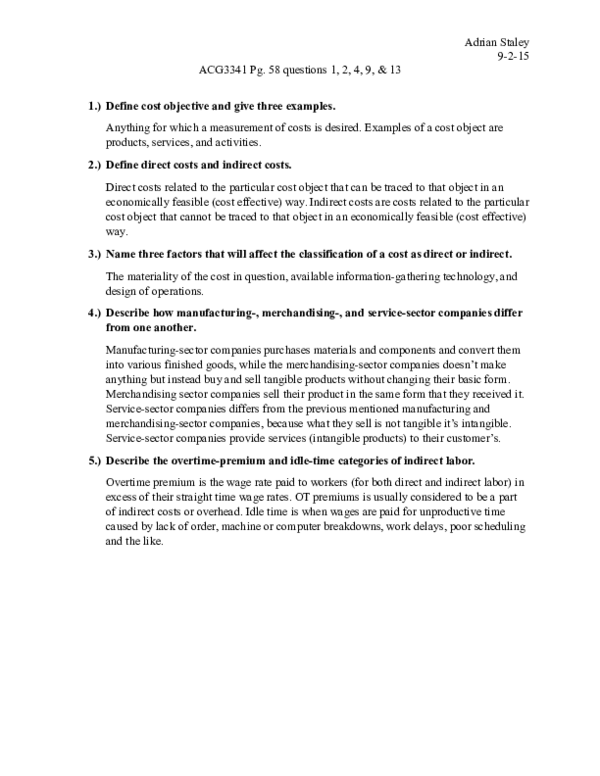Accounting Assumptions and the Farm Business Agricultural Economics

This concept ignores any change in the purchasing power of the dollar due to inflation. Companies may need to provide an estimation of projected gift card revenue and usage during a period based on past experience or industry standards. If the company determines that a portion of all of the issued gift cards will never be used, they may write this off to income. In some states, if a gift card remains unused, in part or in full, the unused portion of the card is transferred to the state government. It is considered unclaimed property for the customer, meaning that the company cannot keep these funds as revenue because, in this case, they have reverted to the state government. In order to record a transaction, we need a system of monetary measurement, or a monetary unit by which to value the transaction.
Another key accounting assumption that persons working towards an accounting degree will need to understand is the going concern assumption. This assumption assumes that the business in question will likely continue operating in the foreseeable future. It assumes Accounting Assumptions that the company will not go bankrupt and will be able to meet its obligations and objectives. The going concern assumption presumes that the business will be operating beyond its next fiscal period, will complete its expected plans, and meet its projected goals.
1 Describe Principles, Assumptions, and Concepts of Accounting and Their Relationship to Financial Statements
A petty cash book is a record of minor cash expenditures, that are sorted by month and date. The Imprest system of petty cash books is regarded as one of the most used systems for maintaining a cash book. One of these two is called the simple petty cash book, and the other is the analytical petty cash book.
Trisura Announces Timing of Second Quarter 2023 Results Release … – InvestorsObserver
Trisura Announces Timing of Second Quarter 2023 Results Release ….
Posted: Thu, 03 Aug 2023 07:00:00 GMT [source]
The primary purpose of accounting assumptions is to maintain consistency and accuracy within financial records. By adhering to these principles, all companies can maintain accurate and comparable reporting standards, which enables stakeholders to compare one company’s financial performance with another’s. The assumption is vital in accounting, as it is the basis for all accounting principles. An assumption is an accepted fact used to draw conclusions and make decisions without proof or demonstration. Accounting assumptions provide the foundation for financial statements under Generally Accepted Accounting Principles (GAAP).
Full Disclosure Assumption
As per this assumption, a transaction is recorded at its money value on the date of occurrence, and the subsequent changes in the money value are conveniently ignored. This assumption has another serious limitation and is currently attracting the attention of accountants the entire world over. An individual, department, division, or an entire industry could be considered a separate entity if we choose to define it in this manner. In other words, the proprietor of an enterprise is always considered to be separate and distinct from the business which he controls.
Accounting is the business language used to evaluate performance and financial health. Despite their significance, accounting assumptions could be improved in many ways to prevent significant errors and poor decision-making. It refers to expectations and beliefs taken as accurate without proof or concrete evidence.
A set of financial statements includes the income statement, statement of owner’s equity, balance sheet, and statement of cash flows. These statements are discussed in detail in Introduction to Financial Statements. This chapter explains the relationship between financial statements and several steps in the accounting process.

For example, an organization might use past sales data to assume future growth potential. Additionally, market conditions and customer demand can play a role in determining certain assumptions. These factors all work together to form the basis of an organization’s decision-making process regarding accounting and finance. The concept of assumptions in accounting has been around for centuries and is used to estimate financial information that may be difficult or impossible to quantify accurately.
Accounting Assumptions « The Tools to Analyse Financial Statements »
Inventory costing is an example of how the Matching Principle is applied in accounting practice. This accounting principle aims to ensure that all inventory-related expenses are matched with their related revenues so that the actual cost of goods sold can be accurately determined. The assumption is essential when creating financial statements and other forecasting and analysis documents.
Going concern assumption is one of the fundamental assumptions in accounting on the basis of which financial statements are prepared. The historical cost principle states that virtually everything the company owns or controls (assets) must be recorded at its value at the date of acquisition. There are some exceptions to this rule, but always apply the cost principle unless the IFRS has specifically stated that a different valuation method should be used in a given circumstance. Therefore, total costs and expenses pertaining to the generation of such revenue together with the expenses and cost incurred for the specific accounting period are matched against the revenue for the said period. As such, Accrual System or Mercantile System of accounting is of fundamental importance in accounting. 1) Logical Approach – Accrual Concept ensures impact between revenue and cost whether it is received or not and paid or not.
- This concept assures people that entities will have a long life and will not be closed or sold in the near future.
- Instead, these needs should have preemptively guided management decisions long before personal financial needs increased or decreased.
- The role of the Auditor is to examine and provide assurance that financial statements are reasonably stated under the rules of appropriate accounting principles.
- Accounting assumption refer to the underlying assumptions made when preparing financial statements.
- The financial statements are prepared under the economic entity assumption, meaning that the business itself (or ‘entity’) is separate from the owners of the business and any other businesses.
- Furthermore, it does not have any long-term investments or other assets that are not available for use during its reporting period.
Suppose a company fails to account for certain transactions, revenues, or expenses. Accounting assumptions provide accountants with the essential framework for preparing financial statements. Accounting assumptions are the rules or suppositions that form the basis for a company’s accounting decisions and calculations.
Why Are Accountants Required to Understand Accounting Assumptions?
At the introductory level, the main principles, assumptions and concepts of accounting are very similar between IFRS and GAAP. And for persons who would like to begin a career in this exciting field, they will need to learn about the five key accounting assumptions as described above. Going ConcernThe going concern assumption means the business entity has no end date. Even if the farm business is organized as a sole proprietorship or partnership (where the business ends when the proprietor or either partner passes), this assumption is easily met by farmers and ranchers.
Going ForwardWhile the differences between the two accounting systems are basic, the sheer number of non-cash economic events that happen in a business are numerous, leading to a system that can be intimidating. It is worth it; any time more information is available, better decisions can be made. Analytics in both production and finance will result in more profit and greater success throughout the industry.
- While the cash method of accounting (based on inflows and outflows) is the easiest method, it isn’t the most accurate.
- The landscaping company records revenue earnings each month and provides service as planned.
- This accounting principle aims to ensure that all inventory-related expenses are matched with their related revenues so that the actual cost of goods sold can be accurately determined.
- An account is a record showing increases and decreases to assets, liabilities, and equity—the basic components found in the accounting equation.
- Guesses or estimates, on the other hand, are based on limited information and frequently result in incorrect results.
- This assumption is used when preparing financial statements, so accountants can create long-term plans and develop strategies based on a company’s expected lifespan.
In this article, we will learn about the subsidiary books, it’s types and purchase return books. Investors desire and demand that a company quickly process and disseminate information. Assets are valued for their individual worth rather than their value as a combined unit. Indeed, listing liabilities on the basis of priority in liquidation would be more reasonable. But if they are expressed in monetary terms – $7,000 cash, $50,000 for building, $2,00,000 for land, $8,000 for tables, $6,000 for fans, $1,60,000 for machines, $80,000 for raw material.
Policies & Reports
In addition, accounting assumptions are the foundation for recording assets, revenues, and expenses in financial statements such as the balance sheet and income statement. Such recognition may differ depending on the assumption, significantly impacting companies’ financial reporting practices. This is why accountants must thoroughly review their accounting assumptions to ensure that their financial statements accurately reflect their performance. An accounting assumption is a notion or opinion held by an accountant that isn’t always correct. Because of depreciation charges, an accountant may feel that a company’s assets will always be worth more than what they cost. Fundamental accounting assumptions or concepts are the set of assumptions that are made when preparing financial statements.
Companies must continually monitor their environment and adjust assumptions accordingly to ensure accuracy and relevance over time. Accounting assumptions provide an objective basis for recording and reporting financial transactions, ensuring consistency among financial data users. A basic statement of financial position is a snapshot of the company’s financial situation at a point in time.
In this case, it is going to record 1/12 of the annual expense as a monthly period cost. Overall, the “matching” of expenses to revenues projects a more accurate representation of company financials. When this matching is not possible, then the expenses will be treated as period costs. In conclusion, accounting assumptions provide the foundation for generally accepted accounting principles (GAAP). Although the development of accounting assumptions has evolved, the core purpose remains unchanged. The fundamental accounting assumptions are the assumptions made to generate financial statements according to generally accepted accounting principles.
Wilmington Announces Second Quarter 2023 Results – InvestorsObserver
Wilmington Announces Second Quarter 2023 Results.
Posted: Wed, 09 Aug 2023 07:00:00 GMT [source]
For example, if an attorney is hired with an agreed
upon retainer fee of $2,500 in May, and the services are not performed until
July, the attorney does not recognize the revenue until July. The attorney must earn the income before it
can be recorded as such, even though he/she received cash for the service at an
earlier date. However, because the accrual method believes in recognising the income in advance, it can lead to an overstatement.

We can say it is the logical thought of accounting which carries the process of preparation and finalization of Financial Statements. Additionally, adhering to these assumptions allows for more reliable data when making decisions regarding investments or acquisitions. In accounting, we assume that a company’s assets are equal to its liabilities plus the value of its equity. This means that assets will be recognized at an amount that is expected to be realized from its sale (net of selling costs) rather than from its continuing use in the ordinary course of the business.




